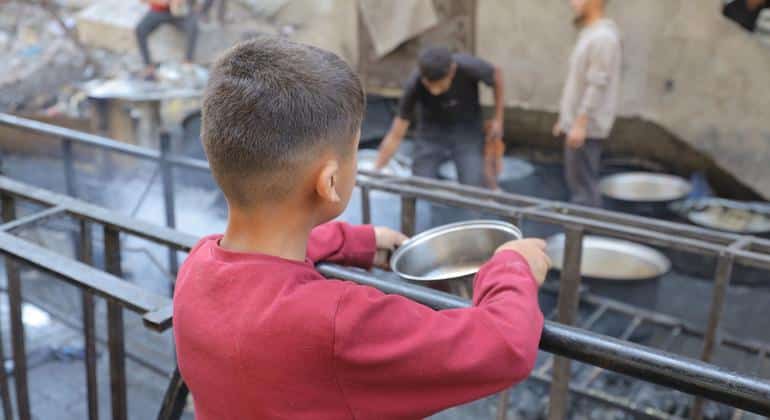Here’s the translation to American English:
—
The conflict in Gaza has reached a critical level since late May, with reports that the Israeli army has killed at least 410 Gazans attempting to access food distribution points managed by a private company. These facilities emerged in response to a severe humanitarian crisis but have been condemned by the UN Office of the High Commissioner for Human Rights, which views them as reflective of war crimes.
The new distribution centers have been proposed as an alternative to aid provided by UN agencies, which have faced numerous obstacles in their humanitarian efforts. The spokesperson for the High Commissioner emphasized that these points have become “places of confusion and death,” where people seeking vital assistance amid the food crisis face mortal dangers.
The UN has stressed that Israel’s militarized approach to humanitarian assistance violates international norms. The use of food as a weapon and restrictions on basic services have been highlighted as serious human rights violations. Thameen Al-Kheetan, UN spokesperson, remarked that many of those affected have been hit by airstrikes or gunfire in a time of calamity and noted that at least 93 people have died while trying to approach aid convoys.
The looting of humanitarian aid has become an everyday occurrence in Gaza after more than 20 months of continuous bombings and a blockade that limits access to essential supplies. It is estimated that over 3,000 Gazans have been injured in incidents related to these centers and food looting, generating a cycle of despair among the population.
This has led people to face a harrowing dilemma: starve or risk their lives seeking food. Although humanitarian organizations have made efforts, aid operations remain severely restricted, with many requests denied by Israeli authorities. This denial severely impacts water supply and the operation of crucial services like medical care.
In this context, UN leaders have described the situation as a “slaughter,” where hunger is used as a weapon. Teams from the Office for the Coordination of Humanitarian Affairs have warned about the urgent need for fuel to maintain health services and other essentials, emphasizing that without immediate deliveries, telecommunications and emergency services will soon collapse again.
As the crisis intensifies, many hospitals are on the brink of collapse, and evacuation orders imposed by Israel further hinder access to medical care. The anguish over the “eradication of Palestinian life” resonates amid the horror faced by those trying to survive under these extreme conditions.
—
Let me know if you need any further assistance!
via: MiMub in Spanish










